Airlines, Airports and Airliners News - 4 to 10 May 2020
Compiled by Willie Bodenstein

COMAIR ENTERS BUSINESS RESCUE IN RESPONSE TO UNPRECEDENTED CIRCUMSTANCES RESULTING FROM COVID-19

Listed airline company, Comair, announced that the group will enter business rescue to safeguard the interests of the company and its stakeholders after the Covid-19 crisis disrupted the implementation of a turnaround plan.
Comair CEO, Wrenelle Stander, said the company, which reported a half-year loss of R564 million for H1 F20, faced an unprecedented situation following the Covid-19 lockdown.
"While we had started making good progress to fix the financial situation six months ago, but the crisis has meant we have not been able to implement it as we intended."
"We completely understand and support the government's reasons for implementing the lockdown, however as a result we have not been able to operate any flights. Now that the phased lockdown has been extended, the grounding is likely to endure until October or even November. These extraordinary circumstances have completely eroded our revenue base while we are still obliged to meet fixed overhead costs. The only responsible decision is to apply for business rescue."
In terms of the lockdown, Comair was required to stop flying on 26 March and has not operated any passenger services since. The Covid-19 crisis has also severely affected the global airline industry. A number of carriers have gone out of businesses. Others such as Virgin Australia and Air Mauritius have implemented restructuring processes, similar to business rescue.
"Comair remains solvent and an important contributor to the South African economy. This is a necessary process to ensure a focussed restructuring of the company takes place as quickly as possible so we can take to the skies again as a sustainable business and play our part in the county's airline industry," said Stander.
Shaun Collyer and Richard Ferguson have been appointed as the joint business rescue practitioners with effect from 5 May 2020.
Comair was granted approval to suspend the trading of its shares on the JSE with immediate effect. The business rescue practitioners will provide shareholders and all other stakeholders with further updates throughout the process.
The business rescue process will build on the turnaround plan that Comair management was already implementing. It aims to preserve cash, cuts costs, dispose of non-performing assets and strengthen the balance sheet. The Section 189A process, which was part of this plan and that began on 23 March, will continue.
The business rescue practitioners will work with the management team and the board towards Comair resuming operations in accordance with all regulatory requirements, including the health protocols to prevent the spread of Covid-19. Stander said Comair will resume its operations in accordance with government directives and will continue to engage with government to accelerate the opening of the airline industry.
"The health and welfare of our customers, crew and the public is the overriding priority and we will only operate when we are sure we can do so safely."
Customers with existing bookings will be able to rebook flights within 12 months of their departure date. There will be no charge for any changes made before 1 November 2020.
"Through this process we intend to right-size our operations to be more efficient, agile and customer-centric. This includes, but is not limited to, reconfiguring our network and fleet mix, reviewing portfolios and joint ventures, increased digitisation of the business and new product development and delivery," says Stander.
"We are confident that with the work we've already done and the support of our stakeholders, we will get through this process and will be a more sustainable business, better positioned to continue serving the flying public and contributing to the South African economy."
The business rescue practitioners will contact all stakeholders and suppliers to plan the way ahead in accordance with the processes set out in the Companies Act.
ETHIOPIAN BRINGS CONVENIENCE TO CARGO CUSTOMERS THROUGH DIGITIZED SERVICE

Ethiopian Airlines, the Largest Aviation Group in Africa and SKYTRAX Certified Four Star Global Airline, introduced a mobile app and chatbot-assisted shipment tracking service to elevate cargo customers' experience.
The mobile app, which is now available for both Android and iOS, will bring convenience to Ethiopian Cargo & Logistics Services customers through a range of self-service features including checking flight schedule, cargo tracking and charter requests at the swipe of a finger, while the Ethiopian Chatbot enables customers to access up-to-date information and track their shipment on Messenger and Telegram.
"As a customer-centric airline, we always seek ways to better serve our customers and bring more digital options to their fingertips," says Miretab Teklaye, Director Group Integrated Marketing Communications at Ethiopian. "The newly unveiled cargo mobile app and chatbot-assisted cargo tracking service will bring convenience for our customers allowing them to access real-time updates about their shipments and to process their charter requests. As the number of mobile apps and messaging platforms users grows globally, we will leverage our in-house digital capabilities to further elevate customers' experience by taking our digital service to the platforms of their choice.
EMIRATES PROTECTS AND PREPARES ITS ALL WIDE-BODY FLEET

While the world yearns to travel once again, meet and hug loved ones, seek new adventures and close those business deals, Emirates is busy protecting and readying the world's largest all wide-body fleet to take to the skies. This could have proved daunting, but Emirates Engineering, a division of the airline and one of the world's most technologically advanced aircraft maintenance facilities, has it all covered - literally!
Ahmed Safa, Emirates' Divisional Senior Vice President Engineering said: "Emirates moves to a different drumbeat - one where the highest standards are absolutely fundamental to our entire organisational rhythm. Everything we do ladders up to ensuring the best customer experience and people feeling safe and reassured while flying with us.
"That philosophy also extends to our Engineering team and how we maintain and secure our multibillion-dollar fleet with the world's largest number of Airbus A380s and Boeing 777s. We don't just cover our engines, but have a comprehensive aircraft parking and reactivation programme that strictly follows manufacturers' guidelines and maintenance manuals and have enhanced standards and protocols of our own.
"We also have the enviable challenge of a full wide-body fleet - 115 A380s and 155 B777s - and the most sophisticated systems and avionics in the industry. While a narrow-body aircraft only requires around 3-4 employees working for eight hours or so to cover it, our aircraft need 4-6 employees working a 12-hour shift. And taking extra precautions while maintaining social distancing adds its own interesting twist to the proceedings."
The parked fleet
Of the 270 aircraft in its fleet, Emirates had initially parked and wrapped up 218 aircraft - 117 at Dubai World Central and 101 at Dubai International airport - that involved more than 15,500 man-hours of work.
Now around 75 Emirates aircraft, both passenger and freighter, are crisscrossing the planet carrying people on repatriation and cargo on essential missions. These continue to be maintained as per standard operating procedures. Some aircraft are undergoing scheduled heavy maintenance in Emirates Engineering's hangars.
It's been done before
Routinely, Emirates covers all aircraft that are taken out of operations for more than 48 hours. Much before the pandemic, Emirates has had to cover a significant part of its fleet during the runway closures at Dubai International airport and during the 2010 volcanic ash cloud disaster that partially grounded the fleet.
Securing the fleet and ultra-sensitive avionics systems
All apertures and openings through which environmental factors - sand, dirt, water, birds and insects - can find their way inside an aircraft are wrapped up and made watertight. That includes engines and air data probes - such as pitot, static, temperature, angle of attack sensors - engine intakes and exhausts and APU intakes and exhausts.
The interiors - whether cabin monuments, seats or inflight entertainment equipment - are also protected from the elements. Potable water systems and aircraft fuel tanks are preserved and engine and APU systems are protected. The process also involves the greasing, cleaning and preservation of landing gear and flight control systems. The team turns off all cockpit switches, disconnects batteries and installs control lever locks and window blinds.
Routine checks
After concluding the protection and preservation works, the team completes periodic checks at 7-, 15- and 30-day intervals across the fleet. These can include simple walk-around inspections to ensure all covers are in place and there are no visible damages or external leaks. Complex checks include removing the covers and reactivating aircraft systems, idling engines and testing engine bleed air and flight control systems.
Reactivating the fleet
Ahmed Safa said: "We need around 4-5 dedicated employees and at least 18-24 hours to put one of our aircraft back into service. Our customers and our employees can't wait to see our majestic A380s and our powerful 777s grace the skies again, operating our normal schedules and delighting travellers worldwide."
AIRBUS REPORTS FIRST QUARTER 2020 RESULTS
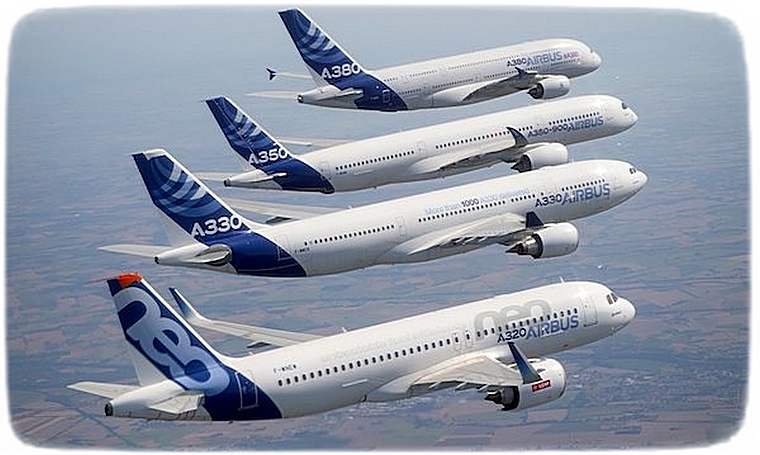
"We saw a solid start to the year both commercially and industrially, but we are quickly seeing the impact of the COVID-19 pandemic coming through in the numbers," said Airbus Chief Executive Officer Guillaume Faury. "We are now in the midst of the gravest crisis the aerospace industry has ever known. We're implementing a number of measures to ensure the future of Airbus.
We kicked off early by bolstering available liquidity to support financial flexibility. We're adapting commercial aircraft production rates in line with customer demand and concentrating on cash containment and our longer-term cost structure to ensure we can return to normal operations once the situation improves. At all times, the health and safety of Airbus' employees is our top priority. Now we need to work as an industry to restore passenger confidence in air travel as we learn to coexist with this pandemic. We're focused on the resilience of our company to ensure business continuity."
Net commercial aircraft orders totalled 290 (Q1 2019: -58 aircraft) with the order backlog comprising 7,650 commercial aircraft as of 31 March 2020. Airbus Helicopters booked 54 net orders (Q1 2019: 66 units), including 21 H145s, 15 UH-72 Lakotas for the US Army and 2 Super Pumas. Airbus Defence and Space's order intake of € 1.7 billion included military aircraft-related services, new contract wins in telecommunications and in connected intelligence. Also included is the Phase 1A demonstrator contract for Europe's Future Combat Air Systems programme.
Consolidated revenues decreased to € 10.6 billion (Q1 2019: € 12.5 billion), reflecting the difficult market environment impacting the commercial aircraft business with 40 less deliveries than a year earlier, partly offset by a better mix and more favourable foreign exchange environment. A total of 122 commercial aircraft were delivered (Q1 2019: 162 aircraft), comprising 8 A220s, 96 A320 Family, 4 A330s and 14 A350s. Airbus Helicopters delivered 47 rotorcraft (Q1 2019: 46 units) with its 19% increase in revenues reflecting the favourable delivery mix and growth in services. Revenues at Airbus Defence and Space were stable year-on-year. One A400M transport aircraft was delivered in the quarter.
Airbus delivered further industrial progress in the first quarter, however around 60 aircraft could not be delivered due to the COVID-19 pandemic. As announced in early April, due to the COVID-19 situation average monthly aircraft production rates are being adjusted to 40 for the A320 Family, 2 for the A330 and 6 for the A350. This represents a reduction of roughly one third compared to pre-crisis average production rates. On the A220, the Final Assembly Line in Mirabel, Canada, is expected to progressively return to a monthly rate of 4 aircraft.
LUFTHANSA GROUP INTRODUCES A MANDATORY MOUTH-NOSE COVER
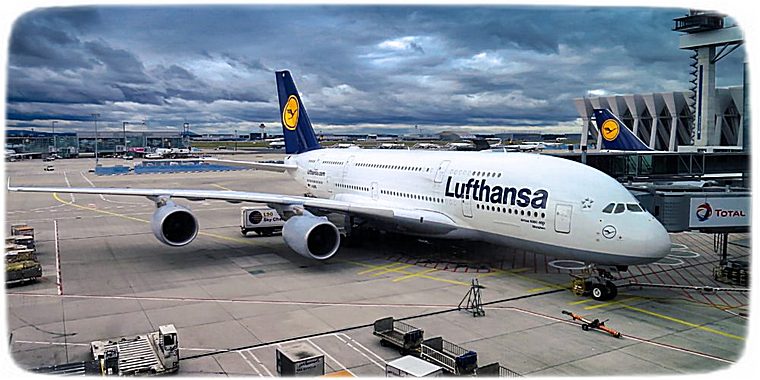
From Monday, 4 May, the airlines of the Lufthansa Group are asking all passengers to wear a mouth-nose cover on board their flights. In addition, the company recommends that passengers wear them throughout the entire journey, i.e. also before or after the flight at the airport, whenever the required minimum distance cannot be guaranteed without restriction. Despite numerous adjustments to service procedures, it is not always possible to maintain the required distance on a flight. Therefore, this measure serves as additional protection for all passengers. All flight attendants on Lufthansa Group flights in direct contact with customers will also wear a corresponding mask.
The Lufthansa Group is thus complying with the official regulations of numerous European countries in which the wearing of a mouth and nose cover is now mandatory in public places.
All passengers are requested to bring their own mouth and nose cover. A reusable fabric mask is recommended, but all other types of coverings such as simple disposable masks or scarves are also possible. The airlines will inform their passengers in advance by SMS or e-mail and on their websites about the new regulation.
The obligation to wear the mask will preliminarily apply until 31.08.2020.
The current regulation of Lufthansa Group Airlines to keep the neighbouring seat free in Economy and Premium Economy Class will no longer apply, as wearing the mouth-nose cover provides adequate health protection. Due to the current low occupancy rate, seats will nevertheless be allocated as widely as possible throughout the cabin.
In principle, infection on board remains very unlikely. Since the outbreak of the pandemic, no concrete cases of transmission on Lufthansa Group flights have become known. All Lufthansa Group aircraft are equipped with the highest quality air filters, which guarantee air quality similar to that in an operating theatre. In addition, the air circulates vertically instead of being distributed throughout the cabin.
BERLIN BRANDENBURG PASSENGER TERMINAL AT BER APPROVED FOR USE
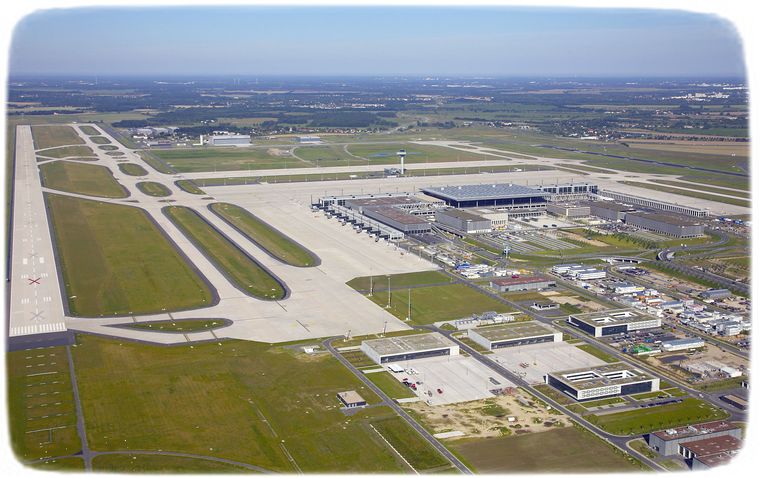
The Dahme-Spreewald administrative district's local building inspection authority confirmed the completion of the passenger terminal (Terminal 1) at BER following completion of the construction work. After months of the specialist authority checking the documents for construction completion submitted since 2019 by the building owner, Flughafen Berlin Brandenburg GmbH (FBB), there is now nothing to prevent it from being used as a passenger terminal with the commissioning of BER Airport in Schönefeld scheduled for 31 October 2020.
The granted approval for use is a milestone for the opening of BER. "I am very pleased that the 'passenger terminal' construction site is finally being completed after years of construction work and that evidence for the safe use of the building is available", says Dahme-Spreewald's building regulation coordinator, Heike Zettwitz.
The operating company FBB can now start preparations for trial operations (ORAT programme), which will be being carried out alongside some ongoing remaining construction work.
RIGA AIRPORT IS GETTING READY TO RESUME FLIGHTS
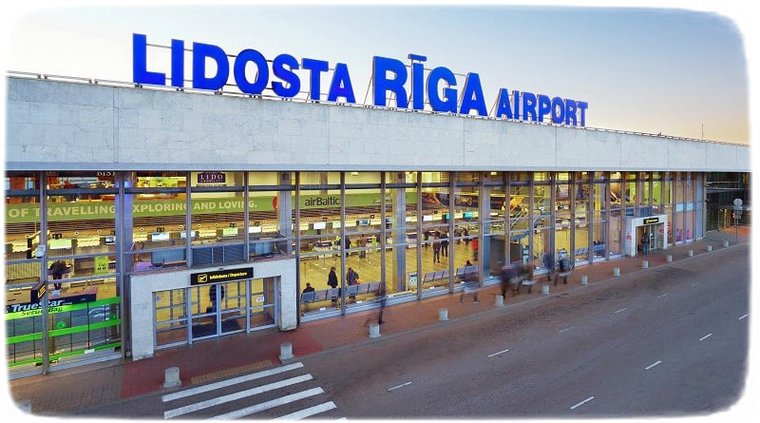
In preparation for the resumption of international passenger traffic after the end of the emergency situation, Riga Airport is working on additional preventive measures at the airport terminal to protect employees and passengers and limit the spread of COVID-19, as well as planning the necessary personnel and infrastructure resources for a gradual increase of the number of flights.
In order to prepare its passenger terminal for the increase in passenger traffic, the airport will introduce more extensive measures to protect its employees and passengers and to limit the spread of COVID-19. These include health safety measures to reduce the risk of spread of the disease in the check-in area, security controls, at boarding gates and on buses, as well as the provision of safety glazing at check-in desks and the provision of personal protective equipment for staff members. Intensified cleaning and disinfection measures are also planned in the terminal premises, equipment and buses; medical staff will be involved to monitor passenger health.
The airline data available to the airport on the resumption of planned flights after the lifting of the emergency situation shows that the resumption of flights will take place gradually, taking into account both travel and communication restrictions in Latvia and other countries and changes in the habits of people. Many foreign markets will remain limited even after the crisis and fewer flights to Riga are expected to take place for several years to come. The expected number of passengers by the end of this year could be around 1.6 million, and the next year - 4.6 million, instead of the previously planned 8 million.
Based on these data and the forecasts of international aviation organizations, the airport has developed three recovery scenarios, assuming a medium-rate recovery forecast as the baseline scenario. Under this scenario, infrastructure and staff resources are planned, so as to ensure that the airport is prepared to respond flexibly to airline demand.
EMIRATES TO OPERATE LIMITED PASSENGER FLIGHTS IN MAY
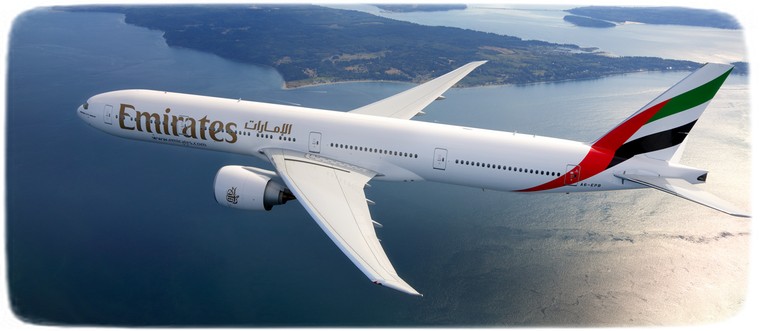
Emirates is set to operate limited passenger services to Frankfurt (02, 04, 06, 09, 11, 13 May), London Heathrow (03, 05, 07, 10, 12, 14 May), Manila (3, 6, 8, 10, 13, 15, 16 May), Sao Paulo (3 May), and Shanghai (2 May). The one-way special flights will facilitate travel for residents and visitors wishing to return home.
Those who wish to travel to Shanghai must contact the embassy or consulate of the People's Republic of China in the UAE. For all other flights, passengers can book directly on emirates.com or via their travel agent.
Only citizens of the destination countries and those who meet the entry requirements of the destination will be allowed to board. Customers will be required to follow all health and safety measures required by the UAE authorities and the country of destination.
Similar to other repatriation flights that Emirates has operated thus far, for health and safety reasons, the airline will offer a modified inflight service that reduces contact and the risk of infection. Magazines and print reading material will not be available. Meals on-board will be served in hygienic prepacked meal boxes, offering customers sandwiches, beverages, snacks, and desserts. A selection of hot snacks will also be served on long-haul flights.
Emirates' Lounge and Chauffeur Drive services will be temporarily unavailable during this period and in-flight Wi-Fi service is available for purchase only. On board Emirates' flights, seats are pre-allocated where possible with vacant seats placed between individual passengers or family groups in observance of physical distancing protocols. More information is available on emirates.com.
Cabin baggage will not be accepted on these flights. Carry-on items allowed in the cabin will be limited to laptop, handbag, briefcase or baby items. All other items have to be checked in and Emirates will add the cabin baggage allowance to customers' check-in baggage allowance.
Passengers are required to apply social distancing guidelines during their journey and wear their own masks when at the airport and on board the aircraft. Travellers should arrive at Dubai International airport Terminal 3 for check-in, three hours before departure. Emirates' check-in counters will only process passengers holding confirmed bookings to the above destinations.
All Emirates aircraft will go through enhanced cleaning and disinfection processes in Dubai, after each journey.
QANTAS GROUP MARKET UPDATE - INCREASING RESILIENCE FOR LONG-TERM RECOVERY
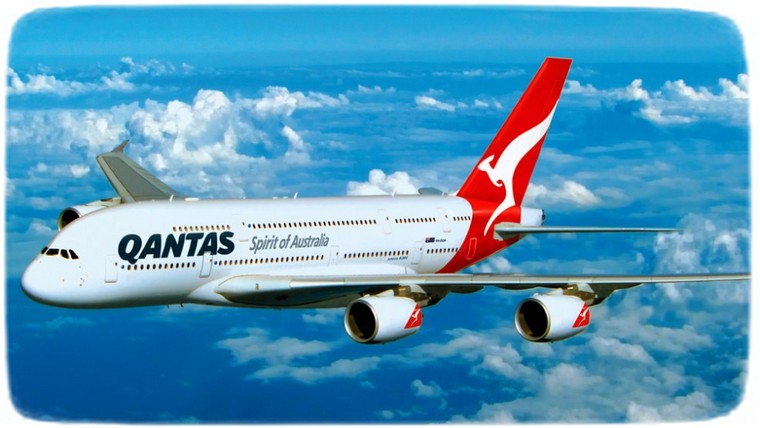
The Qantas Group announced that it has secured a further $550 million in funding against three of its wholly-owned Boeing 787-9 aircraft. This follows the $1.05 billion raised in March against seven 787-9s.
Net debt is now within the middle of the target range, at $5.8 billion. The Group has no financial covenants on any existing or new debt facilities and no significant debt maturities until June 2021.
The group has sufficient liquidity to respond to a range of recovery scenarios, including one where the current trading conditions persist until at least December 2021. The Group currently has $2.7 billion in unencumbered aircraft assets and can raise funds against these if required.
At the start of the crisis, the group acted quickly to wind down cash burn through employee stand downs, a pause on virtually all capital and operating expenditure, and revised agreements with key suppliers.
As a result, and based on current conditions, the group expects to reach a net cash burn rate of $40 million per week by the end of June 2020.
Since the last cash balance update in March, the group has seen outflows including a $250 million bond repayment, elevated levels of annual leave payments from standing down more than 25,000 employees ahead of the JobKeeper program starting and payment of bills from its pre-crisis levels of flying activity.
As at close of business 4 May 2020, total short-term liquidity stands at $3.5 billion, including a $1 billion undrawn facility.
TAP MILES&GO WINS TWO INTERNATIONAL AWARDS
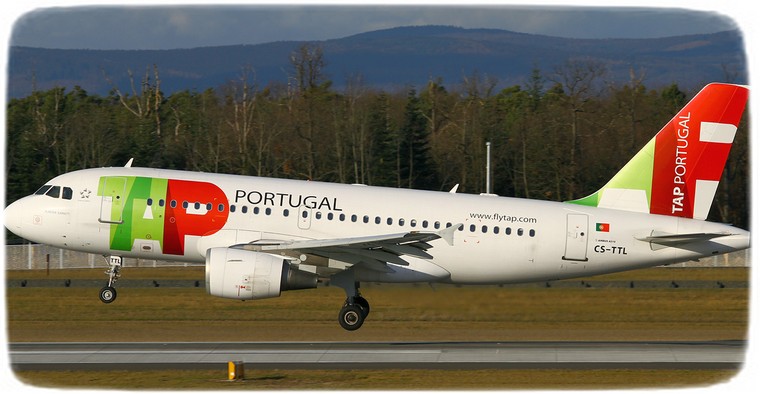
In an online ceremony broadcast from the US city of Colorado Springs the TAP Miles&Go loyalty programme received two awards at the 30th edition of the Freddie Awards, which represent excellence among the Tourism sector loyalty programmes around the world.
The Company received the "210 Award" for Europe and Africa, which considers TAP Miles&Go the programme with the greatest growth potential in these regions and the award in the "Best Redemption Capacity" category for Europe and Africa.
TAP Miles&Go failed to finish in the three podium places in just one of the seven categories. In addition to the two awards, the company came third in the Programme of the Year, Best Elite Programme, Best Customer Service and Best Loyalty Credit Card.
The airline's achievements in this edition represent its client's recognition of the work it has done, particularly in recent years, to improve its loyalty programme, bringing it closer to its client's needs and best international practices, by offering innovative products and new partnerships. These results also highlight a value proposition with international recognition of the TAP Miles&Go programme and the consistency of its client's assessment of it. Remember it was considered the Best European Loyalty Programme by the FTA (Frequent Traveller Awards) and Best Foreign Loyalty Programme in Brazil by the Best Destinations website, both in 2019.
These international awards were introduced in 1988 with the aim of giving frequent flyers a voice and to honour the industry's efforts. The competition is open to all loyalty programmes and the winners are selected by frequent flyer programme members from around the world. Voters were given six weeks to select their favourite loyalty programme in one of the three regions - Europe/Africa, Americas and Middle East/Asia/Oceania. The criteria for choosing the winners was the quality of the vote rather than the quantity, as the participants attribute a value to each of the contestants in their respective ranking.
Given the growing restrictions on civil aviation due to the new coronavirus, and always being attentive and ready to respond to the needs of its Clients, TAP has implemented several customer protection measures in the TAP Miles&Go programme policy that offer even more flexibility and benefits. The measures implemented includes extending time during which miles are valid, extending the client's status for another 12 months and introducing greater flexibility in respect of cancellations and flight changes without penalty, with the miles and the value of the trip being returned as a voucher. TAP continues to closely monitor the situation and will take whatever measures are necessary to minimise its impact.
FRONTIER AIRLINES INTRODUCES 'MORE ROOM' -- ALLOWING PASSENGERS TO GUARANTEE AN EMPTY MIDDLE SEAT
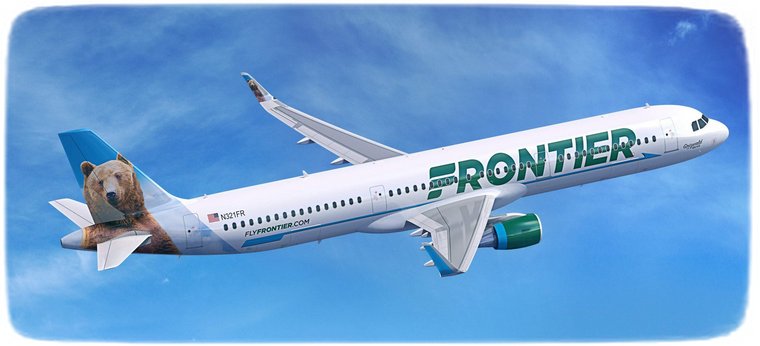
Frontier Airlines passengers can now reserve a 'More Room' seat assignment - with a confirmed empty middle seat next to them. The option complements the airline's mandatory face covering requirement for all passengers and flight crews, along with a wide variety of other initiatives aimed at achieving the highest levels of passenger well-being and comfort when flying Frontier. Passengers can select a More Room seat - starting at $39 per passenger, per flight -- on Frontier's website, FlyFrontier.com, when booking new tickets, managing their booking, or at check-in, subject to availability.
"While we believe the best measure to keep everyone healthy is to require face coverings, for those who want an empty seat next to them for extra peace of mind or simply additional comfort, we are now offering 'More Room,'" said Frontier CEO Barry Biffle.
Flights departing May 8 through August 31, 2020 will have 18 More Room seats available for passengers to select, including Stretch seats in the first three rows of the aircraft, which also provide extra legroom and recline as compared to standard seats. Frontier will announce at a later date whether the More Room program will be extended beyond August 31.
As part of a variety of healthy flying initiatives at Frontier, beginning May 8, 2020, the airline will require that all passengers wear a face covering over their nose and mouth at the airline's ticket counters, gate areas and onboard Frontier aircraft. Face coverings have been required for Frontier flight crews since April 13.
In addition to the face covering requirement, in April Frontier implemented a program that requires passengers to accept a health acknowledgement prior to completing check-in via the company's website or mobile app. Passengers are required to certify that: Neither they nor anyone in their household has exhibited Covid-19 related symptoms in the last 14 days, they will check their temperature before heading to the airport and not travel if they have a fever, they will wash their hands/sanitize before boarding the flight Information on the airline's face covering policy will be added to the health acknowledgement.
Frontier also introduced a fogging disinfectant to its already stringent aircraft cleaning and sanitation protocols, which administers a safe, certified disinfecting solution proven to be effective against many viruses, including coronavirus. The fogging includes virtually every surface in the passenger cabin. Planes are wiped down every night with additional disinfectant as well.
During flight, main cabin air is a mix of fresh air drawn from outside and air that has been passed through an air filtration system that features HEPA filters capable of capturing respiratory virus particles at more than 99.7% efficiency - similar to those used in hospital environments. Frontier's modern all-Airbus fleet is among the youngest in the world - all aircraft currently in operation are less than 4 years old.
|
                   |























